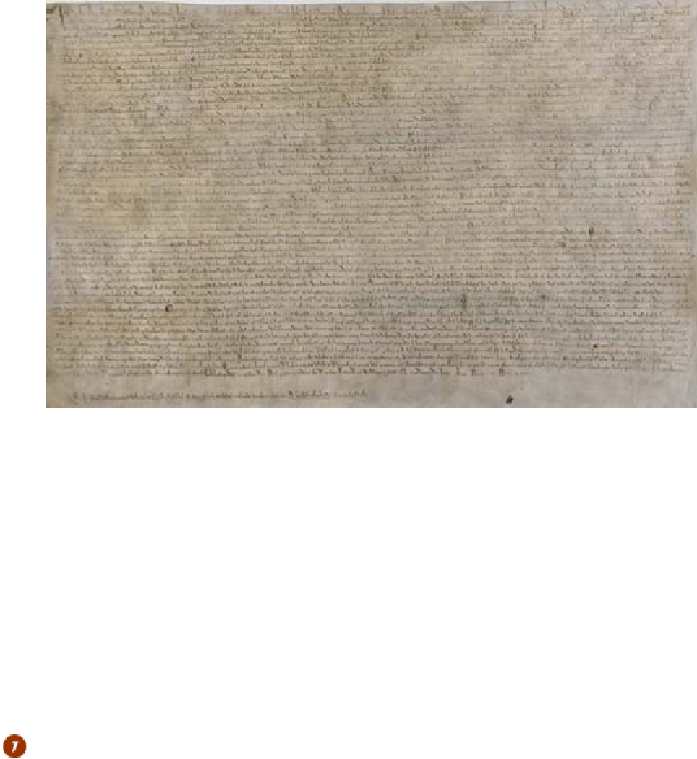Travel Reference
In-Depth Information
This was a turning point in the history of government. Before, kings had ruled by
God-given authority, above the laws of men. Now, for the first time, there were limits—in
writing—on how a king could treat his subjects. More generally, it established the idea of
“due process”—the notion that a government can't infringe on citizens' freedom without
a legitimate legal reason. This small step became the basis for all constitutional govern-
ments, including yours.
So what did this radical piece of paper actually say? Not much, by today's standards.
The specific demands had to do with things such as inheritance taxes, the king's duties to
widows and orphans, and so on. It wasn't the specific articles that were important, but the
simple fact that the king had to abide by them as law.
• Now return to the main room to find...
Leonardo da Vinci's Notebook
Books also spread secular knowledge. During the Renaissance, men turned their attention
away from heaven and toward the nuts and bolts of the material world around them. These
pages from Leonardo's notebook show his powerful curiosity, his genius for invention, and
his famous backward and inside-out handwriting, which makes sense only if you know
Italian and have a mirror. Leonardo's restless mind pondered diverse subjects, from how
birds fly, to the flow of the Arno River, to military fortifications, to an early helicopter, to
the “earthshine” reflecting onto the moon.


